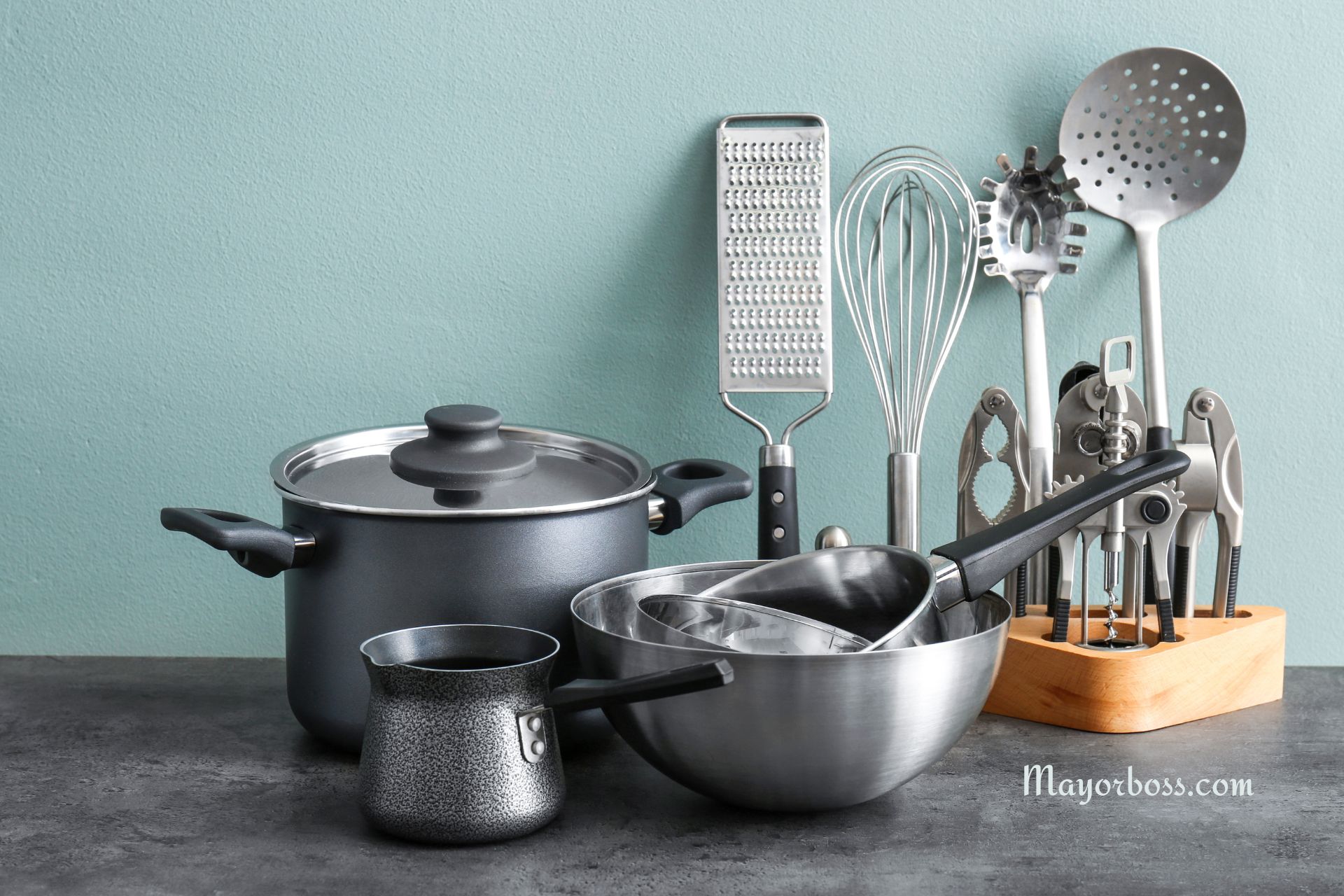Why You MUST Wash New Utensils Before Use
When you bring home new utensils, whether they’re shiny silverware, gleaming glassware, or sturdy ceramic dishes, the excitement to use them is palpable. However, before you set your table with your brand-new acquisitions, there’s an important step you must not skip: washing them. It’s a practice rooted in health and safety, ensuring that your first meal from these utensils is not only delightful but also hygienic. This article delves into the reasons why washing new utensils before their first use is essential and the correct way to do it, and it addresses some frequently asked questions on the topic.

Importance of Washing New Utensils
- Chemical Residues: New utensils often come with residues of manufacturing chemicals. These could range from lubricants used in the production process to protective coatings applied to prevent damage during shipping. Washing them removes these substances, ensuring they don’t make their way into your food.
- Dust and Dirt Accumulation: Throughout the manufacturing, packaging, and shipping process, utensils are exposed to dust and dirt. A thorough wash guarantees that you’re not introducing these elements to your food.
- Remove Unpleasant Smells: New utensils, especially plastic and metal ones, might have a distinct smell that can be off-putting. Washing helps remove these odors, ensuring they don’t transfer to your food.
- Enhance Appearance: Washing utensils before use helps in removing any smudges or fingerprints, making your table setting look pristine.
How to Properly Wash New Utensils
- Use Warm, Soapy Water: Fill your sink with warm water and add a squirt of dish soap. This solution is effective at breaking down most residues and dirt on new utensils.
- Scrub Thoroughly: Use a clean sponge or dishcloth to scrub the utensils. Pay extra attention to crevices and hard-to-reach areas where dirt and chemicals might linger.
- Rinse Well: After scrubbing, rinse the utensils under running water to remove all the soap and any loosened residues.
- Dry Properly: Use a clean towel to dry the utensils or let them air dry. This step prevents water spots and ensures that no moisture, which could promote the growth of bacteria, remains.
Frequently Asked Questions
1. Can I use a dishwasher to wash new utensils?
Yes, if your utensils are dishwasher-safe, you can use a dishwasher. Ensure to use a gentle cycle and a mild detergent to prevent any damage to your new items.
2. How often should I wash my utensils?
Utensils should be washed after every use to prevent the build-up of food particles and bacteria. New utensils, specifically, should be washed before the first use.
3. Are there specific cleaning instructions for different materials?
Yes, different materials may require different care:
- Stainless Steel: Avoid using harsh abrasives. A soft sponge and mild detergent work best.
- Glassware: Use a gentle dish soap and avoid extreme temperature changes to prevent cracking.
- Ceramics: Hand wash with warm, soapy water, as dishwasher heat can cause cracking or crazing over time.
- Plastic: Avoid using water that is too hot, which can warp the material. A mild detergent is sufficient.
Summary
Washing new utensils before using them for the first time is crucial for health, safety, and aesthetic reasons. It helps in removing harmful chemicals, dust, and dirt that may have accumulated during the manufacturing and shipping process. Additionally, it ensures that your utensils are free from any manufacturing smells and look their best for your table setting. By following the simple steps of using warm, soapy water, scrubbing thoroughly, rinsing well, and drying properly, you can safely enjoy your meals with your new kitchen additions. Remember, taking this small step goes a long way in ensuring the safety and enjoyment of your meals, making it a practice you should never overlook.
Adopting the habit of washing new utensils not only promotes good hygiene but also contributes to the longevity of your kitchenware. Ensuring that your first experience with your new utensils is both safe and pleasurable sets the tone for many meals to come. So, the next time you bring home new utensils, remember the importance of giving them a good wash before making them a part of your dining experience.
